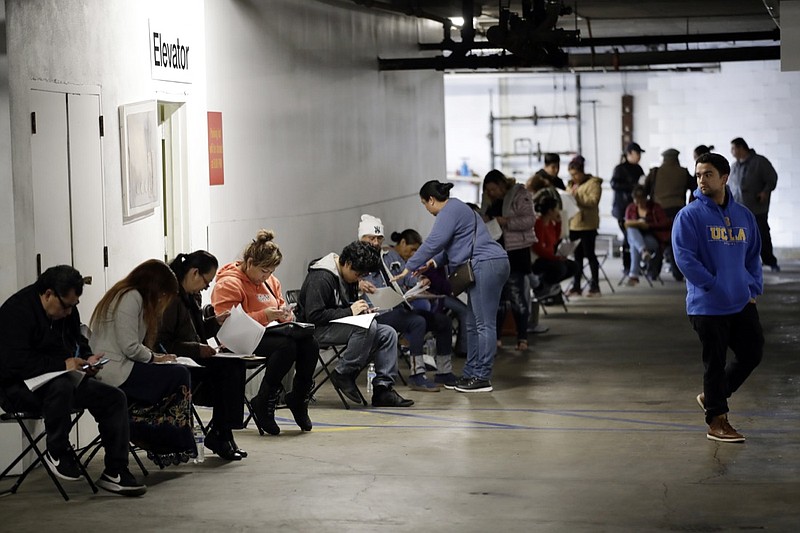NASHVILLE, Tenn. (AP) - Unemployed Tennesseans waiting to receive an additional $600 per week in unemployment benefits from the federal government's massive coronavirus relief package will need to wait a bit longer.
The Tennessee Department of Labor and Workforce Development is currently reprogramming its computer system to accommodate changes from the federal relief package, spokesman Chris Cannon said in an email Wednesday.
"Programmers are working as quickly as possible to make those changes so the state can start providing that particular federal benefit to Tennesseans," Cannon said, although he did not have a date when the work would be complete.
Shamira Chism was laid off from her job as a line cook at a Nashville hotel three weeks ago and is only able to pay her bills with the help of her parents. The 31-year-old said in a phone interview Wednesday that the extra $600 a week would "put me at ease a bit. I could manage my monthly bills, I think, with that."
Chism said she has had a difficult time dealing with Tennessee's unemployment system, which is cracking under the strain of a huge, sudden increase in claims. Unemployment figures released last week showed claims had climbed to 94,500, up from 39,100 the previous week and 2,700 the week before that.
One problem: Everyone is asked to certify their employment status on a single day, Sunday. Chism said the website was crashing and wouldn't load so she didn't get in until after midnight. When her direct deposit didn't show up Tuesday, she panicked.
"I couldn't get a hold of anyone. The offices were closed. The phones were not working," she said. The deposit showed up the following day, but she still doesn't know what happened and can't reach anyone to ask.
The $600 benefit will be in addition to the state's usual $275 per week unemployment benefit. The new benefit will be distributed retroactively with the first payable week the one that ended April 4.
To keep up with demand, the state has shifted 200 employees from other divisions into unemployment customer service, hired additional staff, and upgraded its server capacity, Cannon said. The department is working on other fixes as well, including purchasing even more server capacity.
Also Wednesday, Tennessee's top health officials for the first time released racial demographic data surrounding COVID-19 cases.
However, large chunks of the new data remained missing as information was still pending, according to state officials. Racial data was missing for more than 60% of the state's approximately 4,300 confirmed cases. The state did confirm that 1,140 cases were white people, 320 cases were black people and 32 cases were Asians.
The state's racial and ethnicity data did not include breakdowns by hospitalization or death rates. Tennessee reported 79 deaths as of Wednesday.
Meanwhile, the death toll from those sickened with COVID-19 at a Gallatin nursing home continued to rise.
"To date, there are 11 deceased patients that we received from the Gallatin Center for Rehabilitation and Healing," Sumner Regional Medical Center spokesman Kyle Brogdon said in a Wednesday text message.
For the vast majority of people who have the coronavirus, symptoms clear up in several weeks without requiring hospitalization, but the consequences can be life-threatening for older people and those with existing health problems.
